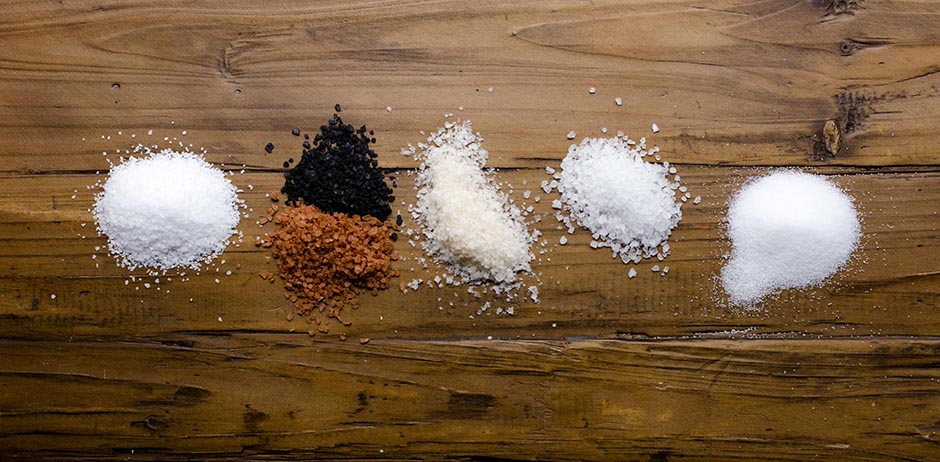Table Salt
The best-known kind of salt, fine table salt is available in plain or iodized forms, and contains additives to slow clumping so that it’s easier to use in a saltshaker. During the Great Depression, iodine deficiency was a problem in parts of the United States, so salt manufacturers added iodine to prevent illnesses such as goiter. Today, people can get iodine from other food sources, too, such as seafood, seaweed, yogurt and eggs.
Use it for: general cooking, baking, in a saltshaker on the table
Sea Salt
Evaporated from a living sea or ocean, sea salt is typically less refined than table salt, so it can contain traces of other minerals, including iron, magnesium and iodine. It is also available in different grain and flake sizes. There are a variety of types; for example, fleur de sel (“flower of salt”) is an expensive, gourmet sea salt hand-harvested from coastal salt ponds in France.
Use it for: sprinkling on top of just-cooked foods, from meats to veggies
Smoked Sea Salt
You can find sea salt in a number of infused flavors; choose smoked sea salt to add a smoky flavor to dishes such as meats and veggies. When buying a smoked sea salt, check that it’s been naturally smoked versus containing a liquid smoke flavoring, which can taste bitter.
Use it for: seasoning grilled meats and fish; in creamy soups; on pasta, potatoes and salads
Hawaiian Sea Salt
This coarse salt comes in red or black. The red color derives from a natural mineral called alaea, a volcanic clay added during the harvesting process. Black sea salt gets its color from the addition of charcoal. Both salts can have an earthier flavor than regular sea salt.
Use it for: seasoning cooked red meats and fish, sprinkling on salads, adding a fun pop of color
Kosher Salt
This salt got its name because its craggy crystals assist in curing meat, a step in the koshering process where the salt draws blood out of meat so it can be wiped off. Kosher salt is free of iodine, but a few brands contain an anticaking additive. Its coarse texture also makes it easier for pinching and estimating seasoning more accurately.
Use it for: general cooking; sprinkling on salads, meats and fish; coating rim of a margarita glass

